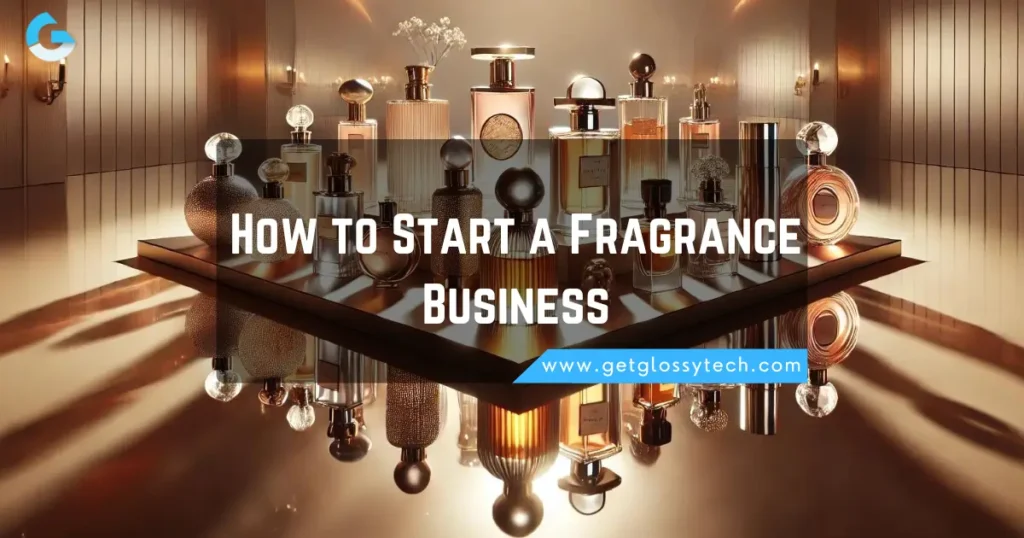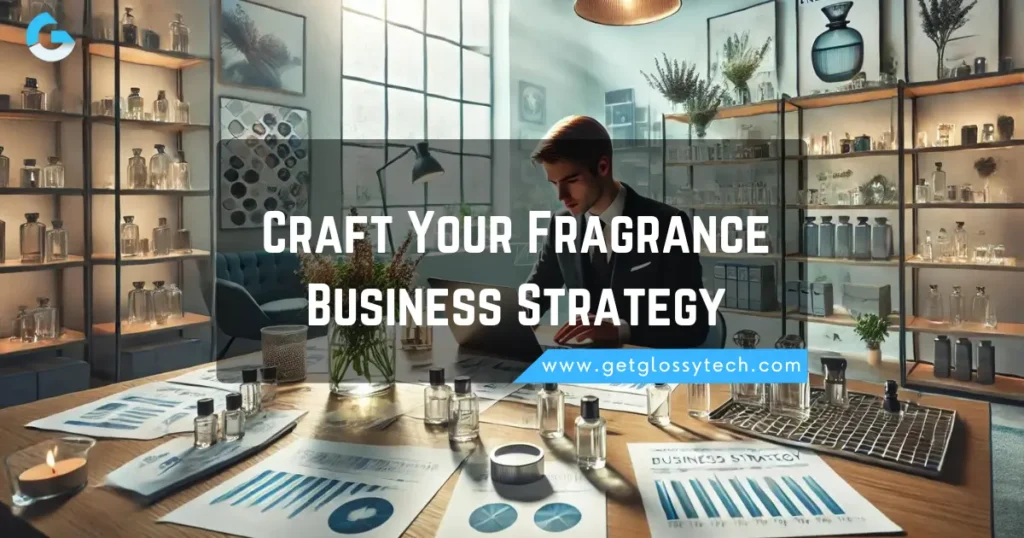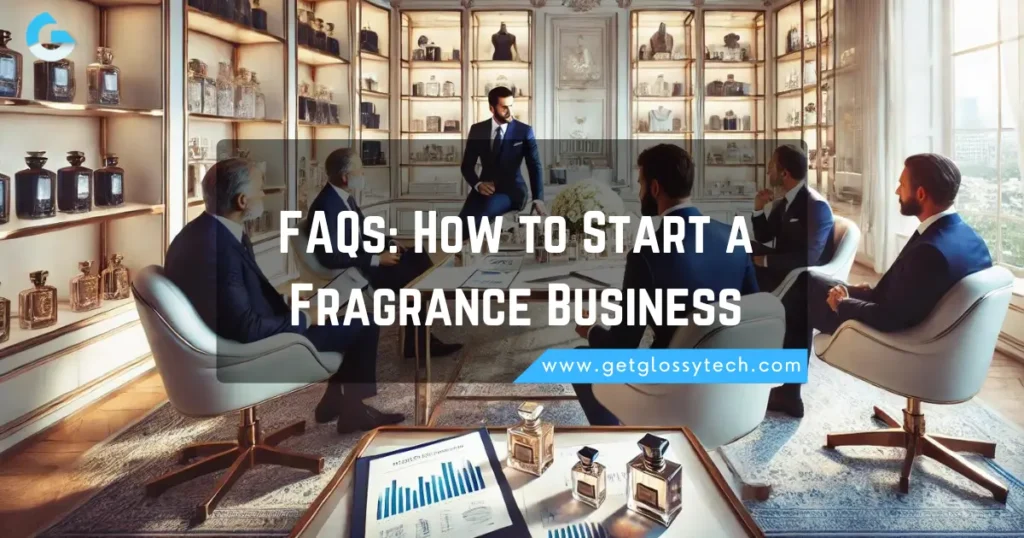How to Start a Fragrance Business

Starting your own perfume business is like creating a magic potion! If you love smells and dream of mixing your own scents, this adventure is perfect for you. It’s not just about making something that smells good; it’s about making something special that others will love to wear every day.
First, you’ll need to think about the costs and find the best ingredients to make your perfumes stand out. Working with trusted suppliers and a good filling company will help you get started without trouble.
Remember, having a team that knows a lot about perfume is really important. They can give you great advice and help you make the best choices.
With some planning and the right people to help, you can create wonderful perfumes that might become everyone’s favorite. Imagine being the reason someone smiles and feels good every time they wear your perfume. Ready to start this fun journey?
1: Craft Your Fragrance Business Strategy

Starting a perfume business requires more than just a love for fragrances; it demands proper planning, hard work, and a thorough business strategy. Whether you’re launching a small boutique or aiming for a large-scale production, the journey begins with a solid foundation.
Let’s dive into the initial steps you’ll need to set your fragrance venture on the path to success.
Crafting a business plan is crucial before you even begin to mix your first scent. This document serves as your roadmap, detailing key details about your company’s direction and goals. It includes:
- Executive Summary: A snapshot of your perfume business to engage readers and potential funding sources.
- Company Overview: Share the history and type of perfume line you are establishing, be it retailer or manufacturer.
- Market Analysis: Covers market research, trends, and demographics essential for targeting the right clients.
With your business plan polished, it’s time to focus on the launch. This phase involves the execution of your marketing and operational strategies:
- Marketing Plan: Utilize a mix of social media marketing, pay-per-click advertising, and public relations to attract customers.
- Operations Plan: Outline your processes, and staffing needs, and establish milestones for projected growth.
2: Designing a Distinctive Name and Bottle for Your Perfume

Starting a perfume business is exciting! Your brand should shine, and it all begins with the name. When you choose a name, think of words that are easy to remember, pronounce, and spell. This makes your perfume not just a scent but a part of someone’s lifetime.
Here are a few tips:
- Check if the name is available: Look at trademark databases and see if it’s already registered as a business name in your state or if the domain name is taken.
- Focus on making the name meaningful and memorable.
Now, let’s talk bottles. The bottle and packaging are as important as the fragrance itself. They should complement the type of fragrance you are creating. A catchy name paired with a distinctive bottle helps your perfume stand out in a sea of others.
Customers often expect luxurious packaging, but here’s what to remember:
- Many fragrances have comparable aromas and contain similar ingredients.
- An attractive bottle and label might suffice to set your brand apart.
Getting your new scent to the people is the next big step. Register your new name with the appropriate state and city offices and obtain business licenses. This sets up your brand for recognition and sales. Your marketing should be bold, from ads showing off fancy bottles to smart online campaigns that promote the unique scent and story of your perfume.
3: Choosing the Kind of Perfume Venture to Start

Starting a perfume business is not just about crafting unique scents; it’s also about picking the right type of business. Here are the four main types of perfume ventures you can consider:
- Retail Perfume Store: Open a traditional store where customers can purchase perfumes directly.
- Perfume Distributor: Serves as a middleman, connecting manufacturers with retail outlets through reliable wholesalers and distributors.
- Online Store: Sell products via the internet, reaching a broader audience.
- Perfume Manufacturer: Create and manufacture perfumes using raw materials, allowing for full creative control.
When it comes to making money, understanding your costs and how much to charge is key. Say you decide to develop a 1-ounce perfume bottle. If the wholesaler’s price is $6.25 per bottle, you might sell it to a retailer for $12.50. This is double the wholesale cost. Then, the retailer might charge $25.00 in their store. This price reflects a 20 to 50% markup from your wholesale rate.
By analyzing these aspects, you can determine the type of business you want to start and plan your next step.
4: Selecting the Right Business Structure for Your Perfume Company

When you decide to establish a perfume business, choosing the right legal structure is essential as it impacts how you operate, your exposure to debts, and your legal standing. Understanding the differences can ensure you’re setting up for success. Here are the key options:
Limited Liability Company (LLC):
- Owners are not personally liable for business debts or obligations.
- Offers flexibility in management and pass-through taxation.
- Avoids double taxation of both company and owner profits.
C Corporation
- Ideal for businesses planning to scale or go public.
- Allows issuance of shares to attract investors.
- Shareholders benefit from limited liability, but profits are taxed twice: once before and once after dividends are distributed.
S Corporation:
- Combines LLC benefits with the ability to have shareholders.
- Allows pass-through taxation without self-employment taxes on profits.
- Shareholders must meet certain eligibility criteria, limiting flexibility.
Choosing the right structure involves understanding the advantages and disadvantages of each. Consult with an attorney to navigate legal formalities, and ensure all documentation, such as Articles of Incorporation, is properly filed with your state’s Secretary of State.
Properly register your business name and consider your banking needs to set up a bank account specific to your company’s transactions.
5: Identify Your Potential Customers and Market Audience

Knowing who will buy your scents is crucial when starting a fragrance business. To ascertain this women and men often select fragrances based on the time of day—whether for work or play. For example, lighter scents are favored for daytime, while deeper, more robust scents are chosen for the evening.
Next, think about the occasions your customers will wear the fragrances. Are they looking for something special for a date or a professional scent for the office? This understanding can guide your marketing efforts and help you develop collections that appeal directly to your customer’s needs.
To persuade people to acquire your products, consider the power of market statistics. Knowing the most popular men’s fragrances can help you eliminate guesses in product development. Use these insights to offer solutions that meet your customers’ desired outcomes.
6: Obtain Initial Investment for Your Fragrance Enterprise (If Necessary)

Launching a perfume business involves a reliable perfume business plan and securing capital. Personal savings are a straightforward option while reaching out to family and friends can provide early support without the complexities of formal loans. Credit card financing is quick but risky due to high interest rates.
For substantial amounts, bank loans or approaching angel investors who invest in high-potential-for-growth startups might be ideal. Crowdfunding not only helps to raise funding but also gauges customer interest, crucial for a successful launch.
7: Determine Your Core Message and Identify Your Audience

When crafting a fragrance business, it’s essential to embed a unique message that resonates deeply. Think of your scent as more than just an aroma; it’s a narrative of freedom, passion, and desire—elements that form the emotional core of your brand. Reflecting on Tom Reichert’s insights in The Erotic History of Advertising, consider how your fragrance can attract and seduce, tapping into the eros of your potential consumers.
Your next step is to pinpoint your target audience. Beyond just men and women, think about who will find your scent desirable. Are they youth seeking beauty and serenity, or are they seasoned individuals who appreciate a refined scent that complements both day and night? This understanding shapes your marketing strategies, making your campaigns more effective.
Now, bring your fragrance to life by promoting it in ways that advertise its unique qualities. Market your products as inclusive, suitable for every age range, and applicable at any time. Settle into your work, promote creativity, and use techniques that make your fragrance an integral part of daily life. By connecting on this personal level, you make your scent not just a choice but a lifestyle.
Incorporate these strategies with passion, ensuring your fragrance stands out as a pure, thick expression of imagination—like the compelling narratives of Serge Lutens. Each bottle should not only carry a scent but also a story that captivates and enchants.
8: Establish a Base for Your Business

To locate the ideal spot:
- Drive around different areas and look for “for lease” signs.
- Contact a commercial real estate agent who understands your needs.
- Conduct commercial real estate searches online to widen your options.
- Use your network to connect with people who can help you find the right place.
When launching your perfume business, focus on building a strong connection with your customers:
- Design eye-catching marketing materials like logos, business cards, and company stationery to foster customer trust and enhance brand awareness.
- Develop a sleek website that reflects your company’s name and products, complete with your company’s history, contact information, and an inviting website look and feel.
- Utilize social media accounts on platforms like Facebook, Twitter, and LinkedIn to engage with potential customers and strengthen your brand.
- Roll out creative advertising campaigns with perfume ads that convey abstract ideas of femininity and masculinity like the Lanvin fragrance My Sin ad featuring a black cat and white kittens.
- Offer discounts to first-time customers, distribute samples at flea markets, and provide detailed written information about the scent and ingredients.
9: Register Your Fragrance Company with the IRS

Starting your fragrance business requires registering with the Internal Revenue Service (IRS) to get an Employer Identification Number (EIN). This number is vital for various reasons:
- Open bank accounts
- Hire employees
- Track payroll and tax payments
If you’re a sole proprietor, you might use your social security number, but an EIN keeps personal and business finances separate. Always keep this information secure to ensure smooth operations and legal compliance in your fragrance business.
10: Engage All Five Senses in Your Marketing Strategy

Engage All Five Senses in Your Marketing Strategy is a tactic that many brands underestimate. To create an irresistible appeal, it’s essential to involve all five senses in your approach. By doing this, you can form a stronger emotional bond with your purchaser. When people experience your product through smell, touch, sight, and even sound, it creates a long-lasting consumer experience.
For example, perfume advertisements often use a catchy slogan or a memorable jingle to grab the attention of their audience, linking their fragrance to a feeling or memory.
One common mistake many sellers make is focusing only on visuals, missing out on how sensory marketing works. The power of smell is well-known. By offering scents through
- Free sampling, scent strips
- Plastic sachets in mailed advertisements
you can leave a lasting impression. Experts like Nigel Groom, author of The New Perfume Handbook, emphasize using unique forms of promoting scent, like perfume pearls or powdered perfume, which can elevate the consumer’s mind connection and build brand loyalty.
- Incorporate touch with high-quality perfume bottle designs that feel luxurious.
- Use interactive tactics like free samples or scent strips in card stock mailers to create a lasting impact.
- Enhance your fragrance promotion by pairing the smell of fresh coffee or warm cookies during in-store sampling—these double whammies provide a multi-sensory boost.
These small details and interactive tactics build human interest and an emotional link between your brand and the consumer. Perfumers often guide their marketing efforts by offering memorable and engaging experiences that keep their audience coming back for more.
11: Set Up a Dedicated Bank Account for Your Business

To get started, first gather all the required documents. This includes your company’s Articles of Incorporation, your driver’s license, passport, and proof of address. Once you have everything ready, you can go ahead and complete the application form at your chosen bank.
When you meet with your banker, discuss your business needs and make sure to provide all the relevant information. It’s important to identify what services will help your business grow, like credit card options or loans. Building a good relationship with your banker can really help in the long run.
Lastly, always present the right documents to the bank, so there are no delays in setting up your account. Once the formalities are done, your bank account will be ready to use, helping your fragrance business grow.
12: Securing a Trustworthy Supplier Source

Securing a Trustworthy Supplier Source is one of the most crucial steps in building a fragrance business. As a creator, finding reliable suppliers for bottles, caps, and pumps is key. You also need a bottle or box for perfume to present your product beautifully. A good supplier ensures these items are of high quality, so your fragrance feels luxurious to customers.
Look for suppliers who can handle labels or screen prints for the bottle and provide the necessary artwork for the packaging. Make sure everything, from applicable artwork to the bottle and box, reflects the image of your brand. Always ask for samples to check the quality before finalizing a deal. Keep in mind that securing a reliable source will save you money and frustration in the long run.
13: Obtain a Credit Card for Your Business

When starting a perfume business, it’s important to manage expenses wisely. One way is to get a business credit card. This will separate your spending from your business costs, making it easier to track purchases and organize finances.
To apply for a credit card, provide your business name, address, type of business, Social Security number, and date of birth to the bank or credit card company. Once approved, it helps build credit history, making it easier to secure loans or credit lines in the future.
14: Choosing and Purchasing Ingredients for Your New Fragrance Line

Starting your fragrance business involves carefully selecting fragrance ingredients like essential oils, base oil, alcohol, and water to craft your unique scent. You’ll experiment with perfume notes such as top notes, middle notes, and base notes, each adding a character to your creation, whether it’s sporty, sensual, or elegant.
Here’s a quick list of what you’ll need:
- Commercial mixer for larger batches
- Blending bottles and vials of different sizes
- Measuring spoons, measuring cups, and a scale for accurate measurements
- Oven for melting wax
- Perfume-making kit with glycerin and alcohol
While mixing fragrances, track changes as scents can shift. Testing with small batches helps you find the right balance. Adjust using water, base oil, or unique ingredients like sea salt, spicy black pepper, or earthy vetiver.
15: Obtain Essential Business Licenses and Permits

Starting a fragrance business is all about creating unique scents by mixing essential oils, alcohol, and water. You’ll need to carefully measure these fragrance ingredients using measuring spoons, measuring cups, and a scale to ensure accurate measurements.
Testing your scents in blending bottles or vials is essential to see how the top notes, middle notes, and base notes develop over time. Don’t forget, that each ingredient has its own character—whether you’re aiming for a sporty, elegant, or oriental fragrance.
- Use a commercial mixer to blend everything smoothly.
- Track how ingredients like base oil and water affect the scent’s longevity.
- Experiment with ingredients like spicy black pepper, sea salt, or earthy vetiver to create new combinations.
- Keep notes on how your fragrance creation process evolves as scents evaporate.
Once your blends are ready, make sure to store fragrances properly. If you’re using an oven to melt ingredients, ensure everything is safe. Also, shop around for the right equipment like a scale to weigh ingredients, and consider leasing tools to save costs.
Labeling is key—use clear labels that show the ingredients in your perfumes, and don’t forget to create a blog or fragrance creation guide to share your journey and expertise.
16: Locate a Packaging Company for Small Fragrance Production Runs

Starting your own fragrance business can be challenging, especially when it comes to production. Finding a reliable filling company that can help you with both smaller and larger production runs is key.
Many companies require a minimum of 1,500 to 2,000 pieces, but as a beginner, you’ll want to source a partner that allows for smaller quantities. This flexibility makes it easier and cheaper to fill your orders and start building your client base.
This strategy allows you to build and grow your business client by client, adapting and refining your product offerings based on real feedback, which is essential for any successful project.
17: Obtain Insurance Coverage for Your Fragrance Enterprise

Starting a fragrance business requires more than creativity; it demands protection. Insurance shields you from unexpected costs and helps keep your business afloat during tough times. Here’s a quick rundown of the essential coverages:
- General Liability Insurance: Protects against accidents, injuries, and damages from your operations.
- Commercial Property Insurance: Covers losses due to fire, theft, and vandalism.
- Business Interruption Insurance: Compensates for lost income if you’re forced to close.
- Workers’ Compensation: Ensures coverage for employees’ medical expenses and lost wages due to workplace accidents.
Choosing the right insurance policies is crucial. Consulting with an insurance agent can help tailor the best protection based on your business needs.
18: Acquire and Install the Necessary Software for Operating Your Perfume Business

Starting your fragrance business requires essential software to manage and grow your operations effectively:
- Microsoft Office: Essential for handling documents, spreadsheets, and presentations.
- Graphic Design Software: Use Adobe Photoshop or a similar graphic design program to create stunning marketing materials like logos and brochures.
- Accounting Software: Tools like QuickBooks help manage business expenses and income.
- Shipping Software: Programs like UPS Worldship and FedEx Ship Manager enable you to calculate shipping costs and track packages, ensuring timely delivery to customers.
By integrating these tools, you streamline operations and focus on the art of fragrance, making every scent a masterpiece for your clients.
FAQs: How to Start a Fragrance Business

1: How much does it cost to start a fragrance line?
Starting a fragrance line can vary widely in cost, ranging from a few thousand dollars for a small, home-based operation to over $100,000 for a larger, more professional setup. Costs will include ingredients, packaging, marketing, and potentially, facility and regulatory compliance expenses.
2: Is the fragrance business profitable?
Yes, the fragrance business can be highly profitable. With a strong brand, unique scents, and effective marketing, entrepreneurs can tap into a global market eager for new and exciting fragrances. The key to success lies in creating distinctive products that captivate consumers.
3: How to sell perfumes from home?
To sell perfumes from home, start by creating unique and appealing fragrances. Set up an online store or use platforms like Etsy and Shopify to reach customers.
Market your perfumes on social media, emphasizing their unique qualities and personal touch. Offer samples, and consider hosting virtual scent parties to increase exposure. Excellent customer service and consistent branding will help build a loyal customer base.
4: How to become a perfumer?
To become a perfumer, start by studying chemistry or a related field to understand fragrance composition. Gain hands-on experience through internships or apprenticeships in the perfume industry.
Develop a strong sense of smell and creativity by experimenting with different scents. Join professional networks and consider specialized training in perfumery to refine your skills and learn industry trends.
Conclusion: How to Start a Fragrance Business

Starting your own fragrance business can be as exciting as embarking on a pirate adventure, filled with the thrill of translating your unique vision into enchanting scents.
At the heart of this creative journey is a place buzzing with innovation—imagine something like the Alpha Aromatics’ 85,000-square-foot Technology Center in Pittsburgh, where chemists and researchers harness superior quality perfumes and a multitude of fragrances for everything from personal care products to home products.

